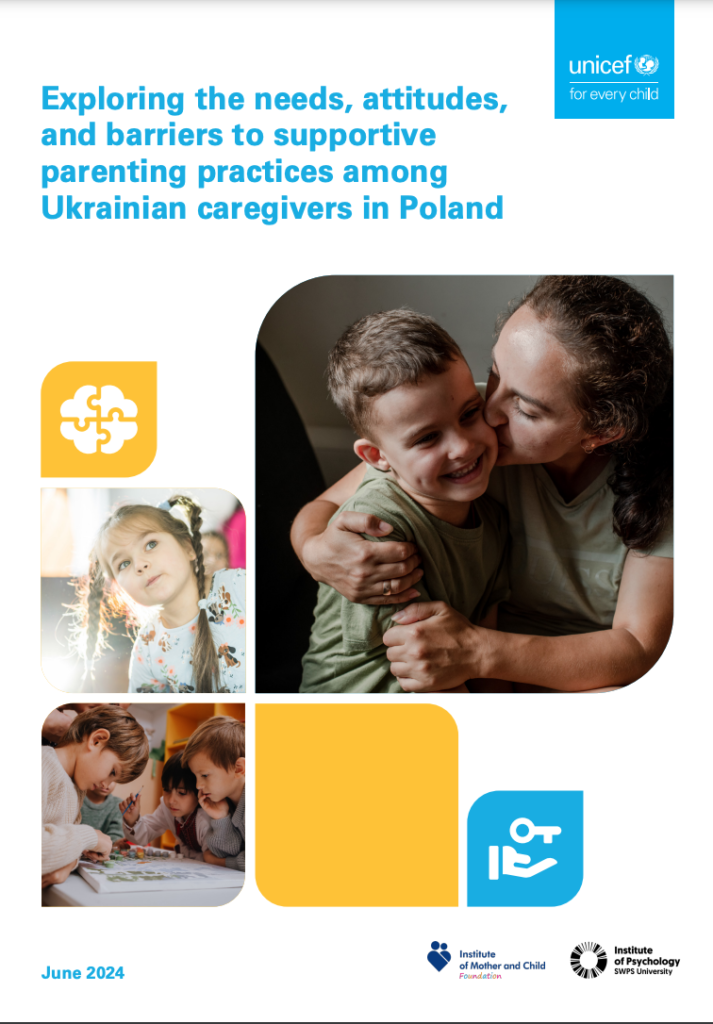Since the escalation of the war in Ukraine in February 2022, Poland has been a critical host country for displaced families, with over 950,000 Ukrainian refugees currently registered for temporary protection, 38% of whom are children. This unprecedented displacement has disrupted family dynamics, placing additional stress on caregivers and exposing challenges in adopting supportive parenting practices. Emotional exhaustion, cultural differences, and limited access to resources have compounded these difficulties, underscoring the urgent need for targeted interventions to support refugee families.
In response to these challenges, UNICEF, in collaboration with the Institute of Mother and Child Foundation and SWPS University, launched a comprehensive study to explore the needs, attitudes, and barriers to positive parenting among Ukrainian caregivers in Poland. Triangle contributed as a key partner, supporting the study with a mixed-methods approach that included Key Informant Interviews (KIIs), Focus Group Discussions (FGDs), and a randomized controlled trial (RCT). Using UNICEF’s Behavioral Drivers Model, the research analyzed psychological, social, and environmental influences on parenting practices.
The study revealed significant barriers, including cultural norms, emotional strain, and logistical challenges that hinder participation in parenting workshops, while also identifying enablers such as peer-led group discussions and a strong interest in learning new parenting strategies. Recommendations included expanding access to culturally sensitive parenting programs, addressing systemic barriers, and leveraging social norms to foster greater engagement in positive parenting initiatives, ultimately strengthening family resilience during this time of adversity.
